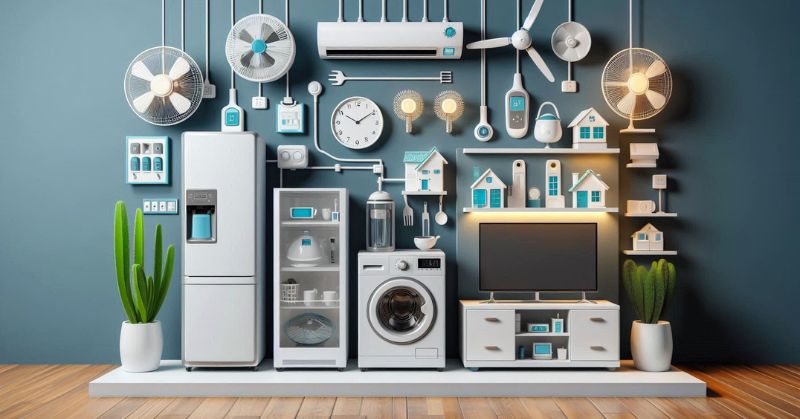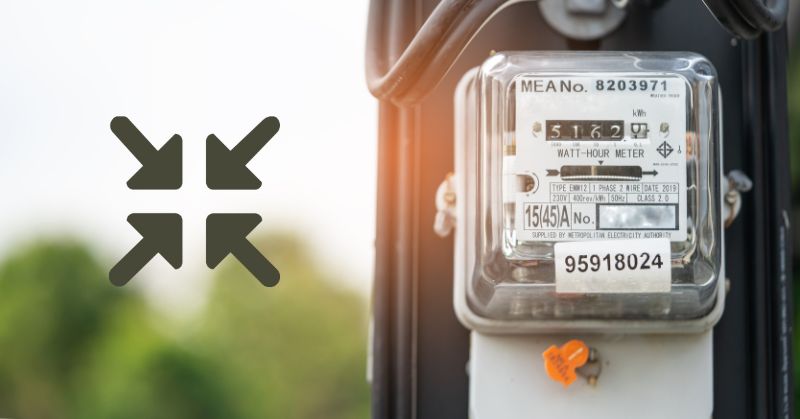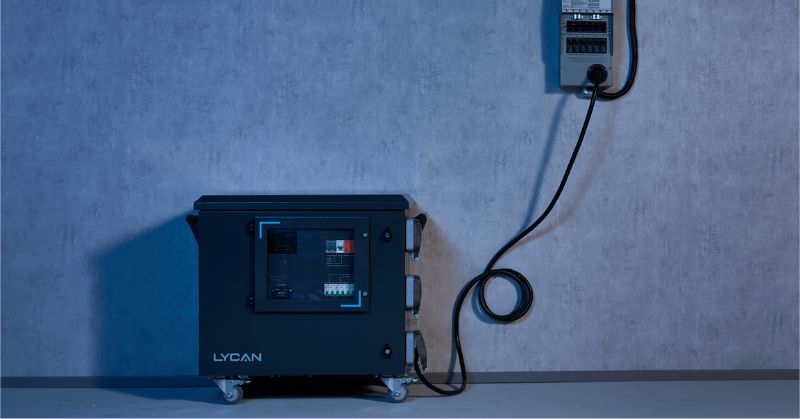What Size Solar Generator Do You Need to Run a Whole House?
A range of generators is available in the current market. Then, why choose a solar generator? Is this what you have in mind? Well, the major reason behind the exponentially increasing popularity of solar generators is their environmentally-friendly nature.
When environmental degradation became a potential concern, solar generators became more popular. Nowadays, they are frequently used as backup power sources in many applications, such as homes, RVs, businesses, and camping. Whether you want to meet the whole house's power needs or are looking forward to running a couple of appliances during outages, it is crucial to consider the generator size.
You can easily determine the generator size by calculating the power you need to energize the whole house or some appliances. This article explains what exactly solar generators for homes are and how you can select the best one for your power needs.
What is a solar generator for a house?
A portable power station designed to capture the sun's energy with PV panels and then store the captured energy in batteries is commonly called a solar generator. The solar panels help the generator convert sunlight into Direct Current (DC) and store it in the batteries.
Direct current can't be used to charge or run electrical appliances. Therefore, another device - solar inverter - is used to convert Direct Current into Alternating Current (AC). AC energy can now power up the whole house or the required appliances.
As you know, power outages due to bad weather conditions have become more frequent. According to the Climate Central Report, electricity consumers in the US experienced around 1,542 power outages due to bad weather conditions between 2000 and 2021.
To deal with these situations, a home solar generator lends a helping hand by providing a sustainable solution for accessing uninterrupted power supply all the time. You can use it to power up the entire building as and when needed.
Some other generators are also available on the market, but none of them are more eco-friendly and sustainable than a solar generator. With a solar generator, you can run almost all appliances, including but not limited to the air conditioner, washing machine, ceiling fan, light, coffee maker, juicer, iron, freezer, electric cattle, microwave oven, television, and electric blanket.
Can a solar generator run a whole house?
Are you concerned about "Can a solar generator power a house?" The answer is a big YES. You can run the whole house with this generator type. Remember, the generator size is important to consider. Different houses may need different generator sizes depending on their areas and energy consumption needs.
Usually, a 2000-watt solar generator can meet the energy needs of a typical house. A solar generator is a combination of PV panels, a solar battery, and a solar inverter. There may be some other components, too. The storage capacity and the output of the generator greatly determine the number of appliances you can run with it.

The amount of solar energy captured largely depends on three major parameters: the rated power of solar panels, the efficiency of PV cells, and the number of panels installed in the house. Environmental factors, such as peak sunlight hours, also have an impact on the amount of the captured solar energy.
During times of high energy usage or low sunlight, it is always recommended to tie your solar generator's output with either a backup power generator or the grid supply. Doing this will ensure a consistent power supply to run the whole house.
You may find a number of modular solar generator systems to run an RV or a tiny house, but when it comes to powering up larger houses for a bigger energy consumption, whole house solar generators are worth buying.
How big should your solar generator be to power a house?
According to the Energy Information Administration (EIA), the monthly electricity consumption of a typical American household is 899 kilowatt-hours, which is approximately 30kWh per day. Trusting this figure when buying a solar generator will not be a good idea. Instead, you should determine your average energy consumption needs.
1. Determine the average energy consumption
The best way to determine how big a home solar generator you need is to look at your monthly electricity bills. Your energy requirements can vary from one month to another, depending on your location, especially when you use electric power to cool or heat your rooms or the whole house. Therefore, consider the bills for twelve consecutive months to calculate your average energy requirements throughout the year.
If you want to buy a solar-powered generator to get a power supply during outages, you will want to consume a smaller amount of electricity than you use when the grid supply is available. Right? If this is the case, it is better to calculate the power requirements of all essential appliances instead of calculating the average annual energy needs by looking at your electricity bills.
2. Determine your power requirements
When you plan to buy the best whole house solar generator, you should be familiar with the amount of electricity you need to run the essential appliances. Here is how you can determine your power requirements.
- Check out the nameplates or rating plates of the appliances (you want to run with a solar generator) to see their running and starting wattage. You can also review the manufacturer's specifications for these figures.
- If you can't find an appliance's power rating, you can simply look at its current and voltage ratings and multiply them to find the power. The formula is as follows.
Power (W) = Voltage (V) x Current (A)
- Note down the running wattage of all appliances and add them up to find the total running wattage your solar generator should provide.
- Find the appliance that has the highest starting wattage. Then, add this highest starting wattage to the total running wattage calculated in the previous step. The final answer will be the total starting wattage your solar generator should provide.
Considering the required starting and the total running wattage of the appliances you want to power up with the solar generator will help you select the best solar-powered backup power source. Generally, a 2000-3000W solar generator can power up all essential home appliances during power outages.
How to choose the best solar generator for your house?
To select the best solar generators for home backup, make sure you consider the factors listed below.
- Rated power: It is also called the running wattage. Rated power is the amount of electricity a generator can continuously produce. It helps you determine the size and number of appliances you can run with a specific solar generator.
- Battery capacity: It is the amount of electricity you get from a battery for one hour continuously when it is fully charged. The battery capacity is measured in watt-hours. It shows how long you can run appliances with the solar generator.
- Starting wattage: Appliances with electric motors (such as washing machines and water pumps) need surge power to start. It is also called peak power. The starting wattage determines how much surge power a solar generator can supply.
- Types of output: Batteries should have multiple and different power outlets or output types to run various devices and appliances. For example, they should feature USB ports for mobile devices and AC/DC outputs for larger appliances.
- Charge inputs: PV panels come with different capacities. To charge the batteries faster, you can use multiple PV cells. Choose the model that allows you to use multiple solar panels instead of generating power from a single panel.
- Recharge time: Some solar generators take around 10 hours to charge batteries. Thanks to technological advancements, the latest solar generators can recharge batteries in 3 hours only, as they combine AC and solar recharging methods.
- Inverter type: Generally, solar inverters are divided into two categories: modified sine wave and pure sine wave. Pure sine wave inverters are a bit costly but are highly efficient and safe to use. In comparison, modified sine wave inverters are budget-friendly, but they can potentially compromise the durability and performance of the connected appliances.
Can a solar generator save you money on your electric bill?
Apparently, you need a huge amount to install a whole house solar generator, but when you compare it with the savings you will have over the years, it is nothing. Therefore, a solar generator can definitely reduce your electricity bills and save you a lot of money that you can invest in other productive things.

Interestingly, the cost of solar technology has reduced significantly in the past few years. This is why solar generators have become more affordable than they were in the past. Nowadays, you can also benefit from rebates and tax incentives offered by the US government. It will help you reduce the initial investment greatly.
How much money you can save on electricity bills largely depends on several factors, including the cost of electricity in your area, your energy consumption, and the size of your home solar system. If you live in a state where the electricity costs are higher than others, you can save a huge amount of money on bills by installing a solar system and using a solar generator.
Renogy Lycan 5000 Power Box for home
Only a few solar generators, like the Lycan 5000 power box, have proven to be more efficient and powerful in providing an uninterrupted power supply. Renogy LYCAN 5000 features a powerful output of up to 3500W, enough to run a range of home appliances for hours.

Fast charging, built-in protection, and multiple power outlets make this generator an ideal choice to stay powered during outages. In addition, the LYCAN 5000 Power Box features a seamless expansion of up to 19.2kWh.
This Renogy generator uses long-lasting lithium iron phosphate batteries (with charge cycles of around 4500 cycles) to power up your home appliances for up to 10 years.
Conclusion
When choosing the right size solar generators for home, you should be familiar with your average energy requirements or the power consumed by essential appliances that you want to run with a solar generator.
A solar-powered generator can save you money on electricity bills in the long run and provides a consistent and uninterrupted power supply during outages. Moreover, this is an eco-friendly generator because it does not release any toxins or harmful gas.
Frequently asked questions
Can I run my entire house on solar power?
Yes, you can install a solar electric system to run an entire house. The more appliances you want to power up with solar energy, the bigger the system you will need.
How much does a solar generator for a house cost?
The cost of a whole-house solar generator may vary depending on your energy needs. Overall, the cost varies between $2,000 and $25,000 depending on the generator size, model, and technology.
How long will a solar generator power a refrigerator?
It depends on your refrigerator's power rating. However, a solar generator can run 75-350 watt refrigerators for about 4 to 6 hours.
How many solar panels do I need to run my whole house?
It depends on multiple factors, such as the rating of PV panels, the size of your home, your energy requirements, and more. But on average, 15 to 20 panels are enough to run most of a house's appliances during outages.











